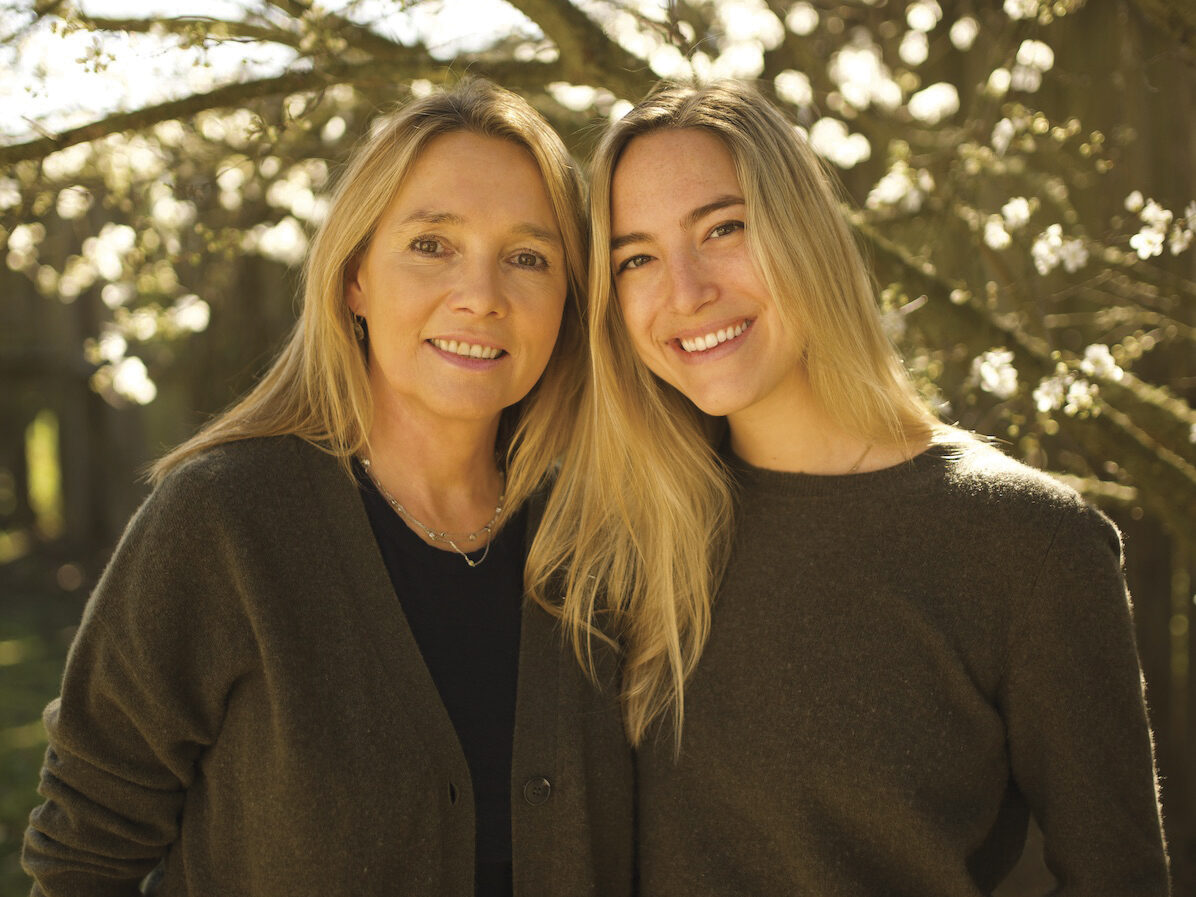Winemaker and Blue Farm Wines Founder Anne Moller-Racke staked her claim in Sonoma when she planted four Pinot Noir clones behind her blue Victorian farmhouse in 2001. It was the beginning of a much larger vision: To cultivate a deep connection to the land and grow world-class Pinot Noir and Chardonnay, eventually launch Blue Farm Wines, and one day pass along her winemaking knowledge and possibly a wine business to her daughters.
In an industry traditionally dominated by men, Sonoma’s Blue Farm Wines stands apart; it employs only women. Before founding the winery, Moller-Racke had built quite a name for herself. She founded Sonoma’s The Donum Estate, collaborated with world-renowned winemaker and vineyard expert André Tchelistcheff, and helped establish the Carneros Wine Alliance. Blue Farm Estate Director Jessica Case explained the impact of working in a female-led environment. “I’m so proud I get to work directly with Anne; I’ve had the chance to learn from a powerhouse woman in the wine industry, a real trailblazer.”
The wine industry is rife with examples of generational wineries. For centuries, inheritance was limited to male descendants, but in the last 50 years, it has become more common for women to inherit. We are entering a new era in which those female torchbearers are now the ones passing down. With women making up only about ten percent of California winery owners, it is significant when they pass the torch not only within their own families but to their daughters.
Moller-Racke’s daughter, Hannah Gropman, grew up playing hide and seek in the Blue Farm vineyards. She said, “After going away for college, I decided to return and pursue my interest in wine.” Having gained experience at other wineries, Gropman joined Blue Farm full-time.
Gropman brings her own set of ideas to the table—like biodiversity. “We moved to be fully organic, which was a great start but doesn’t necessarily help build more of an ecosystem. It was very important to add biodiversity since vines are self-pollinating. I got two hives and planted a pollinator garden with mostly native, drought-tolerant pollinator plants with different bloom times, so something is always growing. Watching a little part of our farm really come to life was amazing. If you plant it, they will come!“
Whether it is the female leadership, the move to biodiversity, or the mother-daughter dynamic, it is working. Case explained, “When we started, there were around 50 club members. Now, there are over five hundred.”
Gropman is in the learning phase at Blue Farm and has the priceless opportunity to be schooled by one of the best—her mother. “I have my hands in all aspects; I do our field scouting for our different vineyards, I help in the cellar during harvest, and I also help with our hospitality/events and social media. Farming is one of my primary interests. It has been an exceptional experience to grow with this land and become even more connected to it.”
Moller-Racke agreed. “It is amazing to grow something that gets better with age, that you know you can pass on to your family. That makes what we do more fulfilling, and you can taste it in the wine.”

